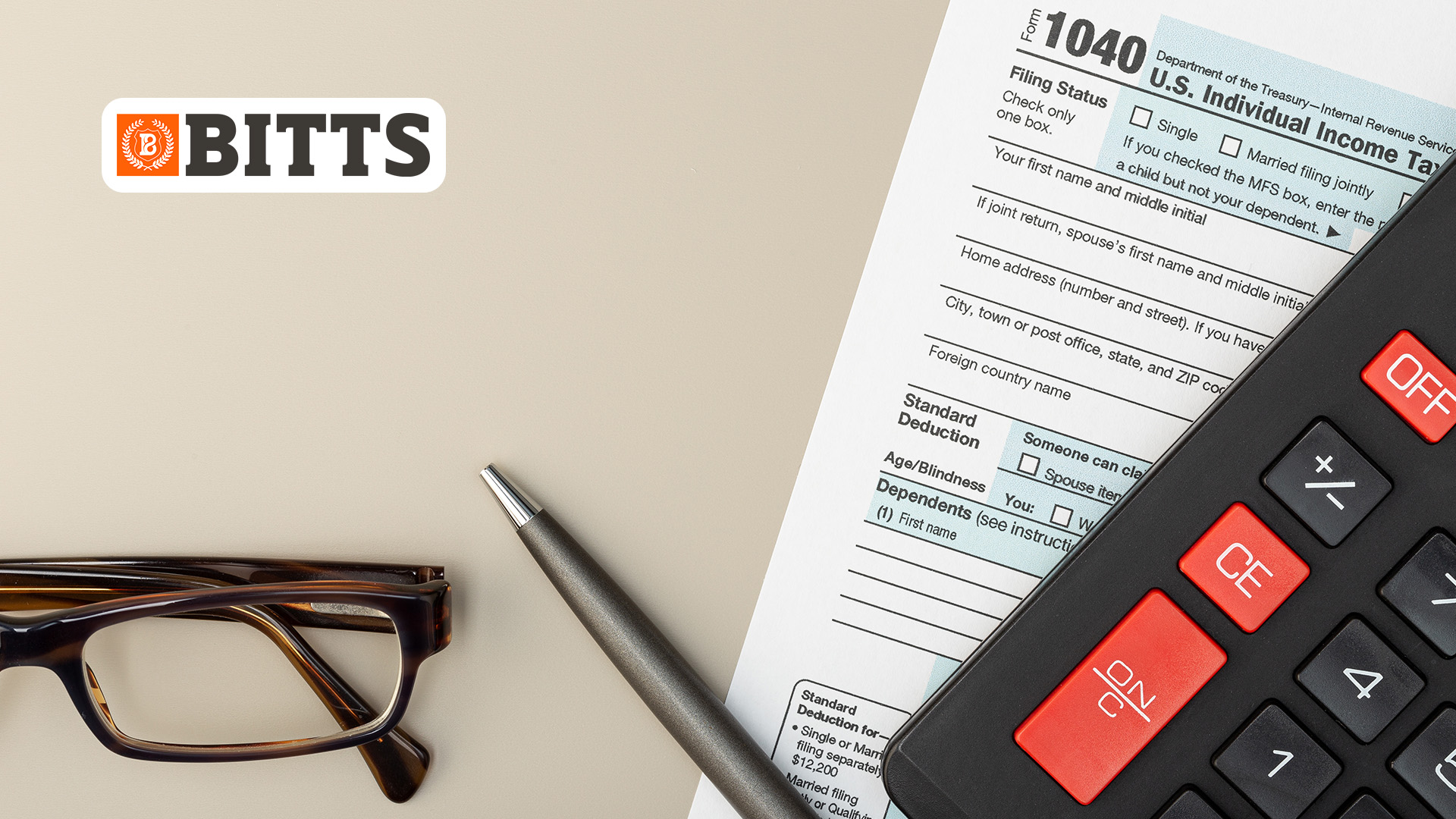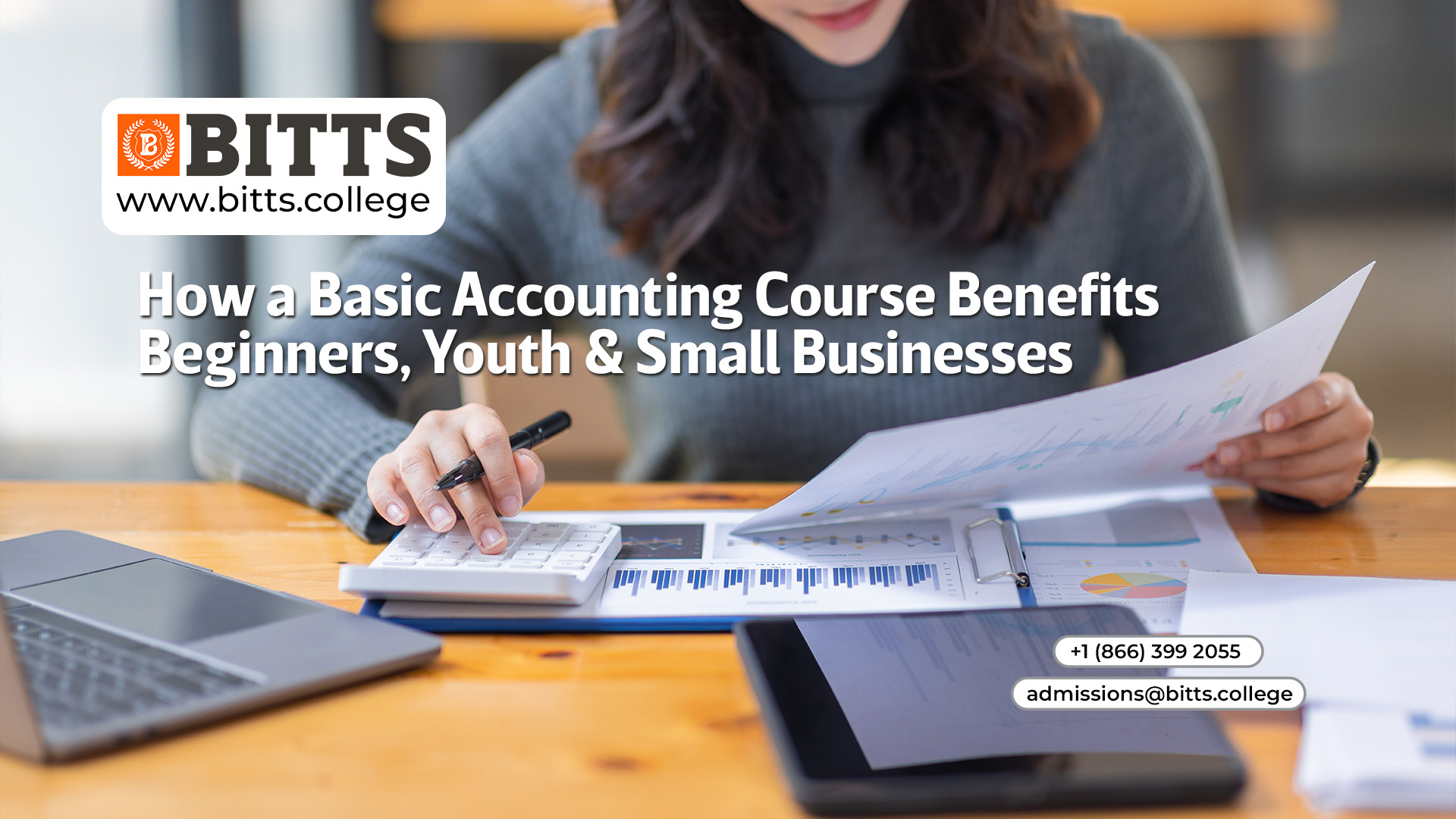
BECOME A CERTIFIED PERSONAL INCOME TAX PREPARER: ESSENTIAL STEPS FOR 2025
Canada is in dire need of skilled tax preparers. As tax laws get more complicated, businesses require experienced personnel offering personal income tax services near me to help them navigate tax compliance and strategies. A tax preparer is an individual who prepares tax forms for individuals, organizations, corporations, and, in some cases, government agencies.
If you choose to work part-time or full-time, a career in tax preparation will allow flexibility and many benefits. People like their potential advantages, from making extra income, working remotely, and creating their schedules to building specialized skills and using them to help others.
In this ultimate guide to becoming a certified tax preparer in Canada, we’ll focus on the skills training that you need to make it happen from the ground up. So stay tuned and let us show you how you can start your career in 2025 and how the BITTS International Career College personal income tax course will give you the key knowledge of the tax return system. Let us start with-
Why Become a Tax Preparer in Canada?
Canada is a country known for its strict financial regulations and tax policies. Tax preparers are trained professionals who know the ins and outs of the Canadian tax system and are used to help Canadians file their taxes according to the regulations.
Working as a tax preparer in Canada can be rewarding and demanding, depending on your technical knowledge, the clients you work with, and the time of the year.
When you enter this role, you enter an arena where precision and customer service come together. It requires a keen approach and a belief in tax laws and regulations. Additionally, a career as a tax preparer offers numerous advantages-
- Helping clients navigate the complexities of tax legislation and figuring out how to lower their tax burden brings joy.
- It provides a versatile career path. While some tax preparers have seasonal occupations, others establish long-term careers with accounting firms, and others use the off-season to pursue other hobbies or side gigs.
- Consistent work is guaranteed by this in-demand service, particularly during the busiest tax season.
- Completing a tax preparation course Canada and getting certified allows you to specialize in various key areas. These include international taxes, business taxes, and tax planning to advance in your profession.
Tax professionals must be able to read through tax rules and find deductions and credits within, requiring analytical and problem-solving skills. They must be vigilant to ensure that they’re correct and compliant. Good communication skills are essential for all professionals, especially in the tax industry. You must know how to communicate complicated tax issues in a clear language that the client can understand.
Here are a few things you should be aware of:
- Canadian Federal and Provincial Tax Legislation
- Preparation of income statement & preparation of tax form
- Tax planning tactics, credits, and deductions
- Electronic tax software and filing processes
- Code of conduct for ethics and professionalism
- Staying updated on current tax updates and rules is critical to providing accurate advice and ensuring respect.
Types of Learning and Development Options
Although there are no rigorous degree requirements for tax preparers, they can still receive training, and finishing a course gives them the experience they need to advance in their careers and earn more money. Tax preparation classes at career colleges and vocational schools offer comprehensive training in tax law, tax forms, and tax software.
Most programs include hands-on income tax preparation training and exercises to help you develop your skillset. An excellent way to distinguish yourself in the job market from other applicants is by completing a tax preparer course Canada.
With the BITTS International Career College personal income tax course, you will be able to learn everything needed to be successful as a tax preparer. Our income tax preparation course Canada curriculum covers a wide range of topics, including-
Tax Filing Requirements for Residents and Citizens of Canada
Tax filing in Canada will vary between residents and non-residents. Knowing the differences is key to following the Canada Revenue Agency (CRA) guidelines.
1. Residency Status
Full Residents: These individuals spend the entire year in Canada and hold considerable residential ties (including a home and family). They have to file a tax return and declare all their international income.
Deemed Residents: Those who stay in Canada for 183 days or more in a year but do not have significant residential ties are deemed residents. They are also required to file a tax return on their worldwide income.
Partial Residents: Individuals who live in Canada part-time or temporarily may have different responsibilities. For example, students or seasonal workers only declare income earned in Canada.
Non-Residents: Non-residents should file a tax return if they have Canadian source income like employment or rental income.
2. Gross Income, Net Income, and Taxable Income
There are several types of income, and understanding them is essential for accurate tax reporting:
- Gross Income: This is the total amount received before any deductions. That’s wages, salaries, bonuses, eviction incomes, dividends, and anything else you would earn.
- Net Income: That is gross income subtracting allowable deductions. These include employment expenses (union dues), business expenses if you are self-employed, and contributions (for example, RRSP contributions)
- Taxable Income: This is the total income liable for tax after applying all the deductions. Taxable income calculates the taxes owed based on the current tax brackets.
3. Deductions
Deductions reduce your taxable income, which can make a big impression on what you owe in taxes. Common deductions include:
- Employment Expenses: Unpaid expenses related to your work
- RRSP Contributions: Deducts Contributions to Registered Retirement Savings Plans from your taxable income
- Childcare Expenses: The costs incurred for looking after children when you are working or studying
- Moving Expenses: If you moved for work or school purposes, certain moving costs may be deductible
Each deduction has to meet specific criteria to qualify.
4. Non-refundable credits and Allowances
Non-refundable tax credits provide a tax offset but cannot result in a tax refund if they exceed the tax liability. Some common types of non-refundable credits are:
- Basic Personal Amount: A credit that allows individuals to make a certain amount without incurring federal taxes.
- Spousal Amount: You can claim this credit if you support a low-income spouse or common-law partner.
- Tuition Fees: Students can claim tuition fees paid for post-secondary education as a non-refundable credit.
These credits reduce your overall tax bill but don’t yield a refund when they’re more than you owe in taxes.
5. Tax Schedules That Require You To File a Tax Return
With that in mind, here are all the tax return schedules you may have to fill out when filing your taxes in Canada:
- Schedule 1: It calculates the federal tax due based on taxable income.
- Schedule 2: To claim non-refundable tax credits.
- Schedule 3: Capital gains and losses are reported using this schedule.
- Schedule T1-M: Spouse or common-law partner amount.
The schedules outline how to report various forms of income and claim relevant deductions or credits.
6. Practice on T1 Computerized Returns
The T1 General form is the main form for filing personal income taxes in Canada. If you are familiar with computerized returns, this can make the filing process easy:
- T1 General Form: This form captures all information regarding your income sources, deductions, and credits.
- Tax software: Many Canadians file their T1 returns electronically using software programs. They usually guide users step-by-step through the process and double-check their accuracy.
Practicing this builds your confidence in the competence and efficiency of returning T1 computerized returns.
7. Practice Cases to File Returns
You can gain practical experience filing returns in various applications on different kinds of income by working through practice cases:
- Employment Income Case: Practice preparing a return that includes salary from employment and deductions (if any) like RRSP contributions.
- Business Income Case: Work through various scenarios surrounding self-employment where it is necessary to report both business expenses and gross revenue.
- Rental Income Case: Learn how to report rental income with the expenses you can deduct, like property management fees and repairs.
- Capital Gains/Losses Case: Understand how to report capital gains from selling investments and deduct any capital losses in the same year.
- RRSP Contributions Case: See how RRSP contributions impact total taxable income and possible refunds.
By practicing these cases, you will develop a complete understanding of how to prepare all forms of returns correctly.
BITTS International Career College: Your Path to Success
BITTS International Career College is a registered private career college in Mississauga, Ontario, committed to offering industry-driven training programs for individuals looking for a quick qualification for the current job market. Our trainers are experienced tax professionals with a wealth of experience in the field. Remote and in-class learning options are available at hours that suit you best, and we strive to offer anyone the proper education to realize their dream.
Our Tax Preparer Course Canada helps students understand the tax return system in Canada. The most qualified individual to evaluate your taxes is you if you possess complete tax expertise. This tax preparation training course prepares students to understand the Canadian personal taxation system and its filing requirements. You will learn how to prepare and file tax returns for individuals, families, and small businesses. Also, you will receive practical training using the tax software used by tax preparation offices and firms in the industry. So, you will be well equipped with the skills employers are looking for when you graduate.
Steps to becoming a tax preparer in Canada
- Step 1: Finish high school. The majority of employers demand at least a high school degree.
- Step 2: Another option is to take a tax preparation course and gain the knowledge you need to succeed in this field.
- Step 3: Register with the CRA: Register with the Canadian Revenue Agency (CRA) to obtain an electronic filing number that allows you to file tax returns electronically.
- Step 4: Gain Practical Experience: Apply for a course in personal income tax preparation near me or volunteer opportunities that help you gain hands-on experience preparing tax returns.
- Step 5: Consider Professional Certification: While not required, professional certification, such as from BITTS International Career College, can boost your career opportunities.
- Step 6: Stay Updated: It is essential to update your knowledge of tax laws and regulations through continuing education and professional development.
People Also Ask (FAQs)
Q: What are the requirements for a tax preparer in Canada?
A: There are no formal requirements to become a tax preparer, although many suggest taking a course in tax preparation. A high school diploma is typically the lowest level of education required.
Q: Do I need a license to be a tax preparer in Canada?
A: There is no formal licensing requirement for tax preparers in Canada. However, if you are e-filing your returns, you must register with CRA.
Q: How much training do you need to be a tax preparer?
A: It depends on the training program you select. You can complete a complete personal income tax course in a few months.
Q: How does the job market look for tax preparers in Canada?
A: Overall, it is good with a continuous demand for qualified professionals.
Q: What are some of the skills I need to be successful as a tax preparer?
A: Important skills are analytical thinking, attention to detail, communication, and problem-solving.
Closing
To file your income taxes correctly, you must know your residency status, types of income, deductions and credits, forms, and schedules, and implement the practicalities of conditions in Canada. If you want 2025 to be the year you get your dream job, this knowledge will help you considerably in your career as a certified tax preparer! BITTS International Career College also has a Personal Income Tax Course that is what you need to start your career in 2025. If you are ready to begin your journey to success, call us today at +1 (866) 399 2055 or email info@bitts.college to learn more about our tax preparation training programs!







